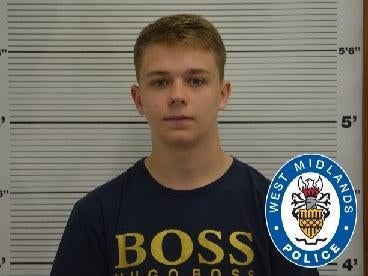Three-quarters of children arrested on suspicion of terror offences are far-right extremists
Police are urging parents to be aware of the signs of extremist radicalisation online amid ‘unprecedented’ rise

Your support helps us to tell the story
From reproductive rights to climate change to Big Tech, The Independent is on the ground when the story is developing. Whether it's investigating the financials of Elon Musk's pro-Trump PAC or producing our latest documentary, 'The A Word', which shines a light on the American women fighting for reproductive rights, we know how important it is to parse out the facts from the messaging.
At such a critical moment in US history, we need reporters on the ground. Your donation allows us to keep sending journalists to speak to both sides of the story.
The Independent is trusted by Americans across the entire political spectrum. And unlike many other quality news outlets, we choose not to lock Americans out of our reporting and analysis with paywalls. We believe quality journalism should be available to everyone, paid for by those who can afford it.
Your support makes all the difference.Three quarters of children arrested on suspicion of terror offences in Britain are far-right extremists, police have said as parents are urged to be aware of online radicalisation.
New figures show that of the 21 under-18s arrested in the year to April, 15 were linked to extreme right-wing terrorism.
Statistics show that 13 per cent of all terror suspects detained are now children, up from 5 per cent in a year.
A Counter Terrorism Policing spokesperson said: “This worrying growth has been occurring since 2015, when young people under the age of 24 accounted for less than 20 per cent of extreme right-wing terrorism arrests – in 2020 they accounted for nearly 60 per cent.”
The remaining six teenagers are believed to include jihadists but a further breakdown was not available.
Several children have previously been prosecuted over attack plots, including a 17-year-old boy who was jailed for preparing acts of neo-Nazi terrorism in November.
Paul Dunleavy had researched how to convert a blank-firing gun into a live weapon, and provided “advice and encouragement” to fellow extremists online.
In January 2020, Jack Reed, then 17, was jailed for preparing acts of terrorism after detailing plans to firebomb synagogues and other buildings in the Durham area as part of what he believed was an upcoming “race war”.
The UK’s youngest-known terror offender was sentenced in February after recruiting members for a neo-Nazi group.
The boy, who cannot be named for legal reasons, was 13 when he committed his first offence and became part of an international online network of far-right extremists.
Police said the number of children being arrested for terrorism offences was increasing at an “unprecedented rate” and urged parents to be aware of online radicalisation.
They warned that the growth was being driven by the targeting of children by older extremists, including through multi-player online gaming, YouTube and chat forums.

The national coordinator for the Prevent counter-extremism programme, chief superintendent Nik Adams, said current trends were “incredibly concerning”.
“We must do more as a society to protect children from this threat and counter-terror police want to help parents, friends and families recognise when children are becoming the victims of radicalisation,” he added.
“Not all children are vulnerable, but some are, and all parents should be aware of the dangers so they can help protect their child if necessary.
“That requires parents, friends and family to help us by talking to their children about what they view online, acting early to share their concerns and seeking support if they fear someone they love is in danger of being radicalised.
“Asking for help is a difficult and emotional step, but we must see it for what it is – action which won’t ruin their lives but may well save them. It is vital to act early.”
Police information and resources are being offered by the parenting website Netmums, including on signs to look out for and tips on protecting children.
The site will host a sponsored “drop-in clinic”, where parents can ask a Prevent officer questions and seek advice.
Anyone with concerns that someone is being radicalised is urged to visit www.actearly.uk or call the confidential Prevent advice line on 0800 011 3764.





Join our commenting forum
Join thought-provoking conversations, follow other Independent readers and see their replies
Comments